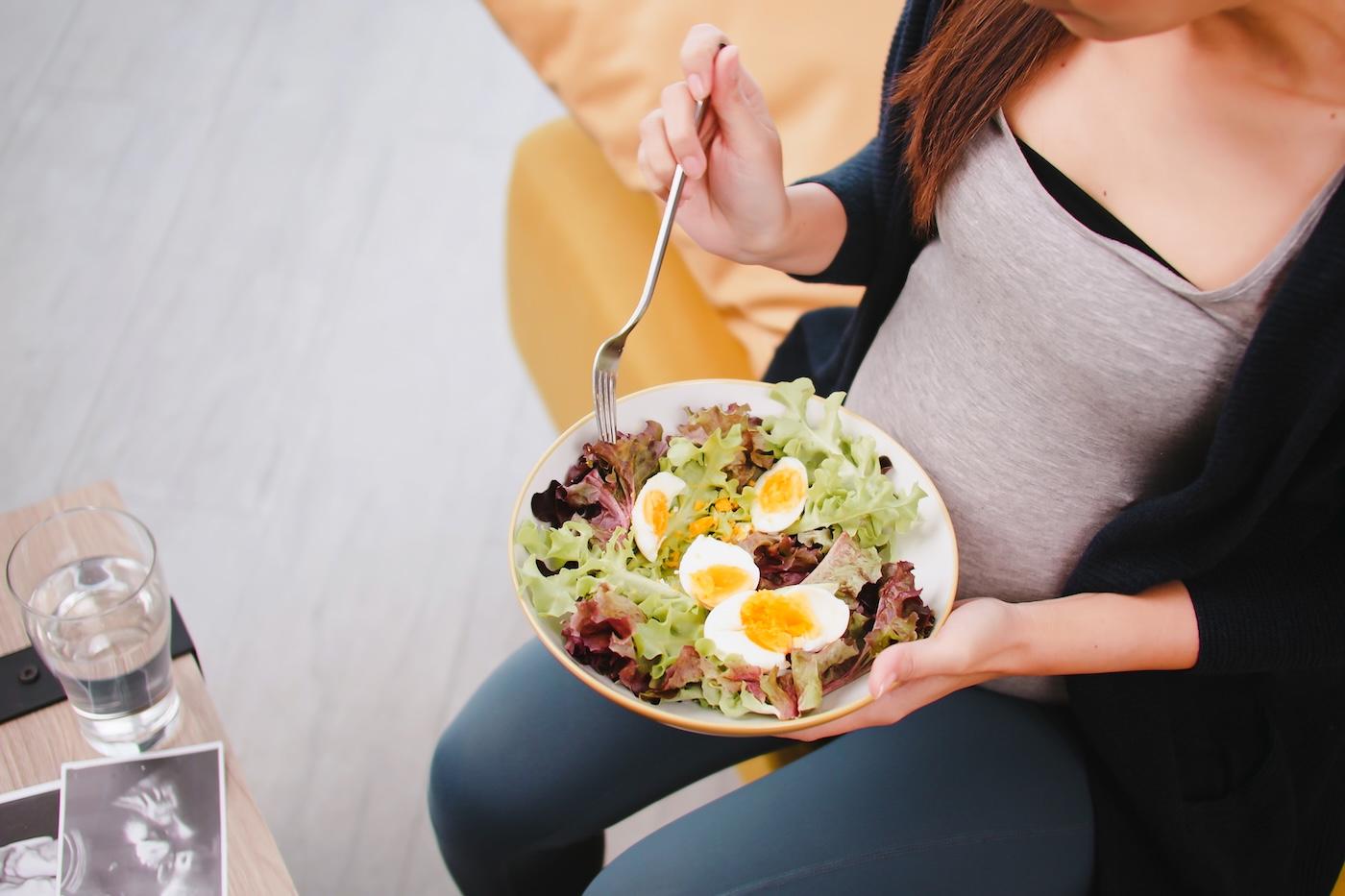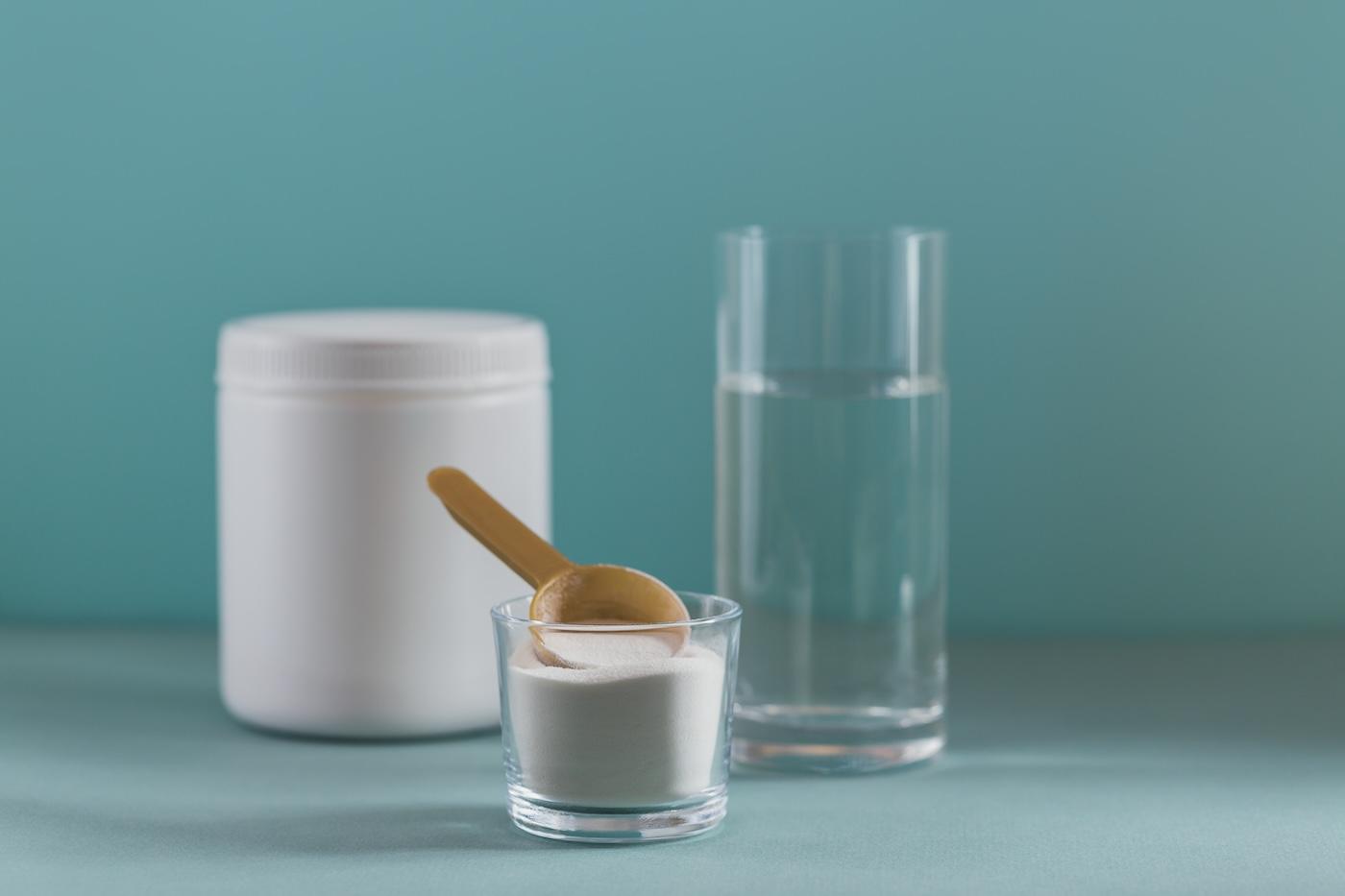PREGNANCY
The Fertility Foods to Eat If You’re Trying to Conceive
Boost your baby-making efforts with these high-nutrient foods.

Written by
Gabrielle McPherson, MS, RDN, LDN

You’re tracking your ovulation, enjoying plenty of sexy time, and ordering bulk pregnancy tests online, but still waiting on a positive test result. So, to maximize chances of conception, your mind might turn…to your plate! Could there be a diet that increases fertility? While there’s no one magic fertility food that can give you a positive pregnancy test, there is evidence that nutrition has a role to play in your reproductive health. Here’s what you need to know about foods that boost fertility.
Fertility Diet
What is the best diet for fertility? Emerging evidence suggests that a Mediterranean diet offers an abundance of essential health-bolstering nutrients while being short on nutrients that may promote poor health in excess. Eating foods included in this so-called fertility diet can help lower inflammation, ward off illness, and boost your health for prime baby-making. In fact, a 2021 review published in Advances in Nutrition points out that several studies show a positive relationship between eating a Mediterranean diet and fertility. The Mediterranean diet includes fruits and vegetables, fish, legumes, nuts and seeds, whole grains, red wine, and little sweets and red meats.
Worst Foods for Fertility
Likewise, a Western diet has been associated with an increased risk of diseases like diabetes and impaired ovulation. And data shows specific nutrients may hinder your ability to conceive, including trans fats, added sugars, and refined carbohydrates. Though studies haven’t definitively confirmed whether alcohol impacts fertility, the American College of Obstetricians and Gynecologists (ACOG) says moderate to heavy alcohol intake may make it difficult to get pregnant. Further, average fast food and poor fruit intake are linked to infertility and associated with a longer time to get pregnant.
The good news? Many nutrients in foods may help increase fertility.
Fertility Foods
The following foods show promise when it comes to boosting fertility and reproductive health.
Beans and Lentils
Health experts recommend taking folic acid supplements before pregnancy begins. That’s because folic acid is a crucial nutrient in pregnancy that prevents neural tube defects, which can be life-threatening. While folic acid is the supplement form of the B vitamin, folate is the naturally occurring form found in foods. Beans and lentils are among the highest foods in folate, so including them in your eating routine can help maintain a healthy pregnancy. Plus, they’re full of bioactive compounds, including polyphenols, which can protect the body from illness and inflammation, conditions that create pregnancy obstacles. Lentils have the highest content of polyphenols compared to other legumes, such as green peas and chickpeas.
Further, according to research, beans and lentils contain plant protein. Eating plant protein may benefit fertility compared to meat because your insulin response is lower. Insulin plays a critical role in ovulation, so eating foods that can help maintain healthy levels may be beneficial.
How to eat more beans and lentils:
- Make dips and spreads with blended beans.
- Scramble lentils inside of eggs.
- Toss beans into a salad mix.
- Pan-fry beans with dark leafy greens and pepper slices.
Fruits and Vegetables
At the risk of sounding like Captain Obvious, it’s a wise idea to pile your plate with fruits and veggies—especially when trying to conceive! Bulking up in the fruit and vegetable department delivers loads of pregnancy must-have nutrients like folate, vitamin A, vitamin C, and phytonutrients. The key to getting all the goodness fruits and veggies have to offer is chowing down on as many colors as possible. Most Americans have been trained since a young age to eat their greens (especially the dark leafy collards, kale, and spinach kinds!), but many fall short of consuming enough of the blue and purple foods. These unique shades indicate they’re chock-full of anthocyanins, a phytonutrient with anti-inflammatory benefits. This is important because many infertility conditions, such as endometriosis (tissues incorrectly grow on the outside of the uterus), are driven by inflammation.
How to eat more fruits and vegetables of all colors:
- Snack on dehydrated fruits and vegetables on the go.
- Add blueberries to your morning oatmeal or smoothie.
- Buy frozen packages of beets and quickly steam them as a dinner side.
- Freeze carrot peelings to toss into a shake.
- Blend vegetables into sauces, soups, hummus, and pesto.
Whole Grains
A 2016 cohort study published in Fertility and Sterility found that women consuming 1.2 servings of whole grains daily before fertility treatment had greater chances for pregnancy and live birth with fertility treatments. The whole grains in the study came from many sources, such as rice, bread, pasta, and breakfast cereals.
What’s more, whole grains—like brown rice, popcorn, oats, and bread—are components of that inflammation-fighting, healthy-boosting Mediterranean diet. Nutritionally, whole grains offer dietary fiber, B vitamins, iron, zinc, and antioxidants, which may help balance blood sugar levels for managing healthy hormones for pregnancy.
How to eat more whole grains:
- Try a quinoa, berry, and yogurt parfait for breakfast.
- Make homemade oat granola bars for a snack.
- Cook brown rice pasta with dinner.
- Make lunch wraps using whole-grain tortillas.
- Bake using whole wheat flour.
Healthy Fats
Some studies have found that healthy fats may positively influence conception by improving reproductive hormone levels and fighting inflammation. Avocados, almonds, sunflower seeds, olive oil, and salmon are excellent sources. Fatty fish, whether canned, frozen, or fresh, is a significant part of the Mediterranean and provides vitamin D. Vitamin D could affect fertility because it helps produce sex hormones, and deficiency may be linked to endometriosis.
Likewise, research shows that harmful fats such as trans fats may increase the risk of infertility issues and promote polycystic ovarian syndrome (PCOS), a condition characterized by infertility. Many restaurants no longer cook using trans fats, but they can still be found in packaged foods with partially hydrogenated oils in their ingredients list. Instead, opt for healthy fats from monounsaturated fats (MUFAs) and polyunsaturated fats (PUFAs).
How to eat more healthy fats:
- Add olive oil to popcorn instead of butter.
- Toss ground flaxseeds into your salad dressing.
- Whip eggs with mashed avocado before scrambling.
- Snack on olives.
- Cook salmon tacos.
More on Nutrition:
- Smoothie Add-Ins for a Healthy Pregnancy
- The Truth About Fish During Pregnancy
- Healthy Ways to Satisfy Every Craving
- Must-Have Nutrients for Vegetarian Pregnancies
- Foods to Avoid During Pregnancy
***
REFERENCES
- Centers for Disease Control and Prevention: Infertility FAQs
- Nutrition and Female Fertility: An Interdependent Correlation, Front Endocrinology, June 2019
- Female Fertility and the Nutritional Approach: The Most Essential Aspects, Advances in Nutrition, December 2021
- The American College of Obstetricians and Gynecologists: Treating Infertility
- Pre-pregnancy fast food and fruit intake is associated with time to pregnancy, Human Reproduction,June 2018
- Diet and Fertility: A Review, American Journal of Obstetrics and Gynecology, April 2018
- NIH National Institute of Neurological Disorders and Stroke: Spina Bifida
- Polyphenol-Rich Lentils and Their Health Promoting Effects, International Journal of Molecular Sciences, November 2017
- Diet and Lifestyle in the Prevention of Ovulatory Disorder Infertility, Obstetrics and Gynecology, November 2007
- The Effect of Insulin Resistance on Ovulation Induction With Clomiphene Citrate in Non-polycystic Ovary Syndrome (PCOS) Women, Cureus, July 2022
- A Review of the Science of Colorful, Plant-Based Food and Practical Strategies for “Eating the Rainbow,” Journal of Nutrition and Metabolism, June 2019
- Maternal Whole Grain Intake and Outcomes of In Vitro Fertilization, Fertility and Sterility, February 2016
- Shedding New Light on Female Fertility: The Role of Vitamin D, Reviews in Endocrine & Metabolic Disorders, September 2017
Disclaimer: The information on our site is NOT medical advice for any specific person or condition. It is only meant as general information. If you have any medical questions and concerns about your child or yourself, please contact your health provider.
SHARE THIS ARTICLE
MOST LOVED
Sleepytime Sidekicks
More on Pregnancy
About Gabrielle McPherson, MS, RDN, LDN
Gabrielle McPherson, MS, RDN, LDN is registered dietitian in Missouri who specializes in community and pediatric nutrition. Gaby is passionate about encouraging families to eat well in simple, practical ways that are realistic...and delicious! When not working, Gaby loves cooking, baking, and making messes and memories with her sous-chef/preschooler Charlotte.












